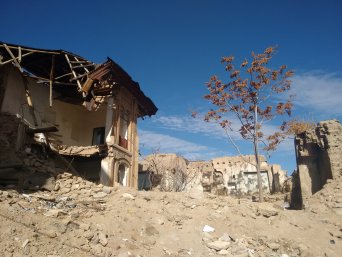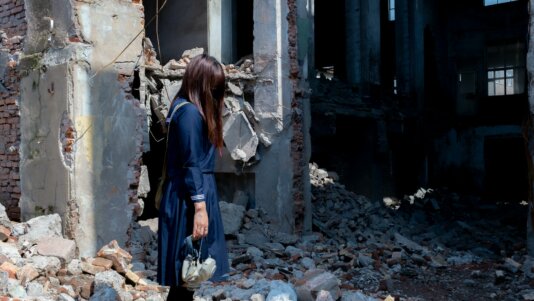- About
- Topics
- Picks
- Audio
- Story
- In-Depth
- Opinion
- News
- Donate
- Signup for our newsletterOur Editors' Best Picks.Send
Read, Debate: Engage.
| topic: | Good Governance |
|---|---|
| located: | Syria, Pakistan, Turkey |
| editor: | Shadi Khan Saif |
Earthquakes are devastating for affected communities, but when the consequential damages are simply dubbed as corresponding natural disasters without discussing the accountability for the associated criminal human elements, it makes the lives of so many people, particularly marginalized ones, even worse.
Most recently, the 7.8 magnitude earthquake that struck near the border region of Syria and Turkey caused buildings to crumble like sand castles, raising serious concerns about the criminal governance flaws regarding building-control regulations.
With each passing day, the death toll continues to rise to heart-breaking levels as more bodies are recovered from the piles of shattered concrete that were once tall buildings and homes for scores of families. According to official figures, the toll of lost lives on Friday, 17 February was above 36,000 and many more wounded in Turkey alone. A much more severe situation is believed to be faced in Syria, where the affected areas are said to be under the influence of the rebel forces at odds with the regime in the country’s capital, Damascus.
This must be the moment the entire world stands in solidarity with the Syrian and Turkish people because the unimaginable task of dealing with a tragedy of this scale is beyond the capacity of a single government.
Having said that, we should also take a step back into the past and examine how and why the reported 3,450 buildings collapsed to the ground? Sitting on the Arabian and Anatolian tectonic plates, earthquakes for Turkey are not a new phenomenon. Why were the buildings in the earthquake-prone areas on the East Anatolian Fault zone not made to ensure at least a minimisation of the scale of devastation we are witnessing now?
In the wake of past similar tragedies, when poorly constructed buildings crumbled following the earthquakes in 1999 and 2011, Turkey came up with the revised Seismic Hazard Map and Building Earthquake Code. However, there remained individuals and groups in the booming construction industry who managed to bypass these codes, likely through deals with the authorities.
After all, Turkey's attractive residency-offer for foreign property buyers has brought in a steady flow of money that could have had an influence on maintaining the building standards.
So what can be done to ensure good and transparent governance to at least avert calamities on such a large scale? One way could be embedding more robust mechanisms in the UN eco-system to watch for such criminal negligence and corruption.
The recent floods that caused havoc in Pakistan is another example of how a country’s powerful elite has made life difficult for millions of people by cheating regulations, and then escaping the responsibility by blaming nature for the consequences. The scale and devastation of the damage caused by the recent flash floods triggered by global warming in Pakistan is set to exceed the previous ones - but has the government learned any lessons from the recurring phenomenon to prevent future ones? Most likely, no.
It’s undeniable that Pakistan has been on the receiving end of global climate change and greenhouse gas emission despite contributing very little to the cause, but the country needs to clean its house by, for instance, stopping the relentless commercialisation of its riverbeds.
Since the local and national governments are not able or willing to ensure transparency to save lives in disasters, we need a global action task force that can ensure their cooperation and chastise any misgivings that put peoples’ lives in danger.
Image by Abbas Mizazade

